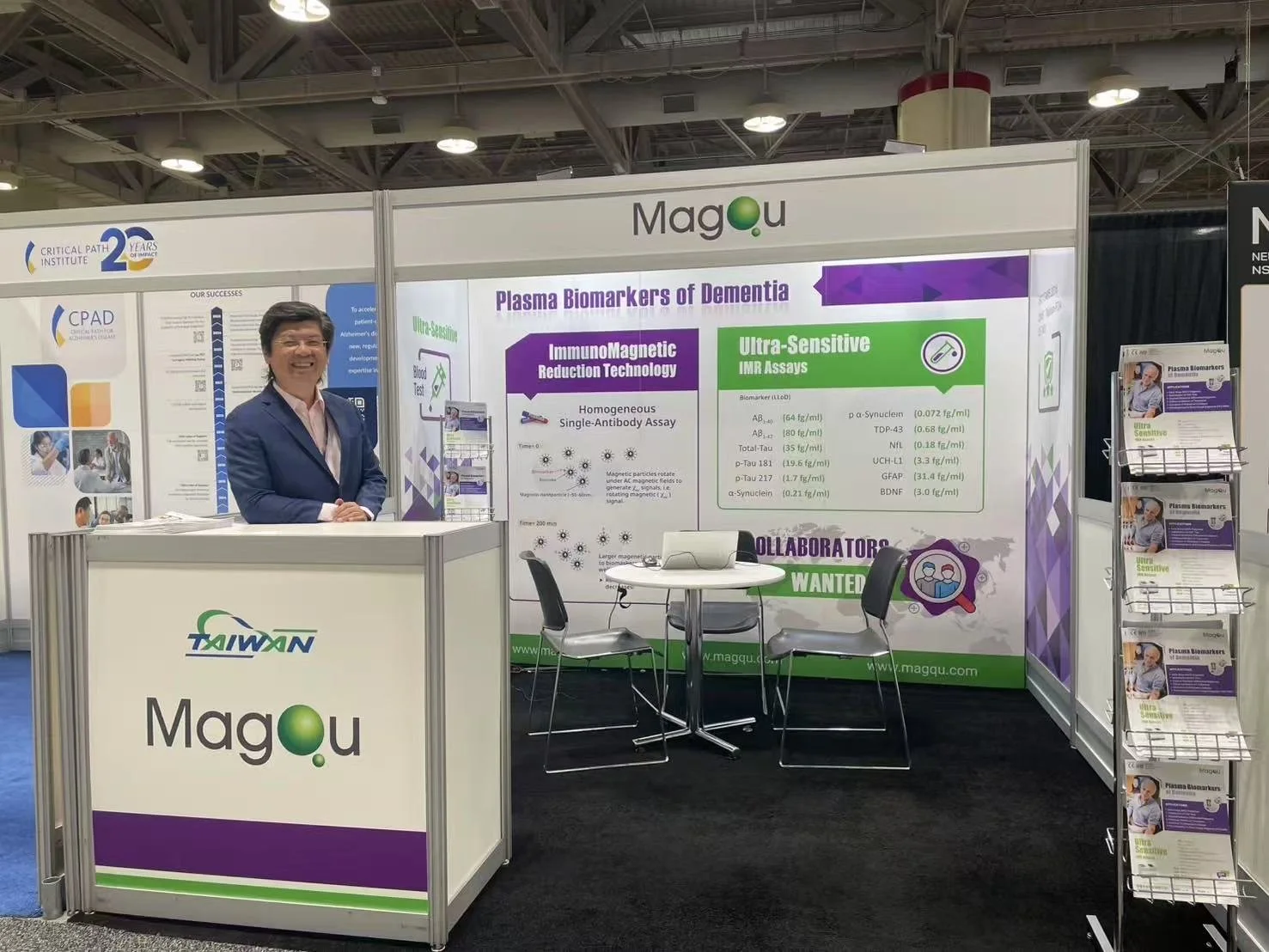MagQu Showcases IMR Alzheimer’s Blood Biomarker Advances at AAIC 2025 (Booth #1340)
MagQu presented its IMR Alzheimer’s blood biomarker technology at AAIC 2025 in Toronto (Booth #1340), highlighting ultra-sensitive detection, full-conformation measurement, and commitment to making blood-based biomarkers accessible for early Alzheimer’s diagnosis.
Toronto, July 2025 – MagQu participated in the Alzheimer’s Association International Conference (AAIC 2025), the world’s largest meeting dedicated to dementia research. At Booth #1340, MagQu showcased its ImmunoMagnetic Reduction (IMR) assays, offering a next-generation solution for Alzheimer’s blood biomarker testing.
Blood Biomarkers Enter Clinical Guidelines
A highlight of AAIC 2025 was the release of the first-ever clinical practice guideline for blood-based biomarkers (BBMs). This milestone validates blood tests as part of the Alzheimer’s diagnostic pathway and establishes performance standards for sensitivity and specificity.
MagQu’s Contribution
MagQu has been advancing IMR blood biomarker assays for more than a decade. Unlike conventional methods, IMR detects both monomers and oligomers, providing the true total concentration of biomarkers such as Aβ42, Tau, p-Tau181, and α-synuclein with femtogram/mL sensitivity.
By presenting at AAIC 2025 Booth #1340, MagQu reinforced its responsibility to:
Contribute validated IMR data to support guideline adoption.
Collaborate with global researchers and clinical labs to accelerate translation into practice.
Make Alzheimer’s testing more accessible and reliable for patients worldwide.
“The inclusion of blood-based biomarkers in clinical guidelines is a turning point for Alzheimer’s diagnosis. At MagQu, we are committed to contributing our IMR technology to ensure early, accurate, and accessible detection for all,” said MagQu USA.
Looking Ahead
MagQu will continue to work with research institutions, CLIA labs, and international partners to expand IMR testing into broader clinical adoption, supporting the fight against Alzheimer’s disease through science, collaboration, and responsibility.

